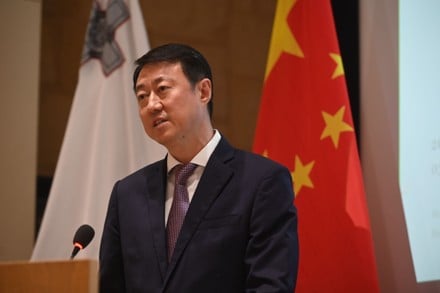Chinese firms to establish Africa’s first insulin plant in Nigeria
China has announced plans to establish Africa’s first local insulin production facility in Nigeria, a development that could drastically reduce the country’s dependence on imported insulin.
The revelation was made by Chinese Ambassador to Nigeria, Yu Dunhai, on Wednesday during a reception in Abuja to mark the 76th anniversary of the founding of the People’s Republic of China.
According to the ambassador, Chinese companies are already in negotiation with Nigerian stakeholders to bring the project to fruition. His remarks emphasised the potential of the plant to transform diabetes care in Nigeria.
He remarked that the facility would “potentially end Nigeria’s reliance on imported insulin and position Nigeria as a hub for African medical biotechnology.”
The project is also presented as part of the tangible benefits of deepening China-Nigeria cooperation in sectors beyond infrastructure.
Yu Dunhai drew attention to other bilateral projects, particularly the recently completed Abuja Water Supply Project, which he said now serves nearly three million people with clean water.
READ ALSO: Chinese manufacturers focus on Nigeria following Trump’s tariffs
He described the cooperation model between China and Nigeria as one driven by equality, pragmatism and efficiency, asserting that China remains committed to supporting Africa’s development.
Yu also noted a symbolic connection: both China’s National Day and Nigeria’s Independence Day fall on October 1, a coincidence he said binds the two nations closely.
In his speech, the ambassador also recounted some individual stories of collaboration, including that of Ms Issah Fatimah Abiola, Nigeria’s first female train driver trained under Chinese support, known in China by her Chinese name Bai Yang.
Another highlight was a young boy from Kano, Ibrahim Ismail, fluent in Mandarin, whose skill the ambassador cited as illustrative of deepening cultural and educational exchange.
Ambassador Yu praised Nigeria’s decision to include Chinese language in the senior secondary school curriculum, calling it a bridge for future cooperation.
At the same reception, the Deputy President of the Senate, Barau Jibrin, sent greetings from President Bola Tinubu and reaffirmed legislative backing for deeper bilateral engagement.
READ ALSO: FG signs $328.81m deal with China to boost power supply
Jibrin, via Sen. Babangida Hussaini, stressed that Nigeria is poised to provide enabling laws and oversight to ensure China-Nigeria partnerships remain transparent, sustainable and beneficial.
Meanwhile, within Nigeria, the National Biotechnology Research and Development Agency (NBRDA) has already executed a Memorandum of Agreement (MoA) with Shanghai Haiqi Industrial Company of China to establish a sustainable insulin manufacturing facility.
That agreement was finalised in Abuja, signed by NBRDA Director-General Prof. Abdullahi Mustapha and the Chinese firm’s general manager Bokai Zhai, under the aegis of the Federal Ministry of Innovation, Science and Technology.
Mustapha remarked that with this initiative, Nigeria will have standardised, locally produced insulin, boosting affordability, supply security, and regional biotech capacity.
He projected that the initiative would not only reduce import bills but transform health outcomes for Nigerians living with diabetes.
Follow the Neptune Prime channel on WhatsApp:
Do you have breaking news, interview request, opinion, suggestion, or want your event covered? Email us at neptuneprime2233@gmail.com





